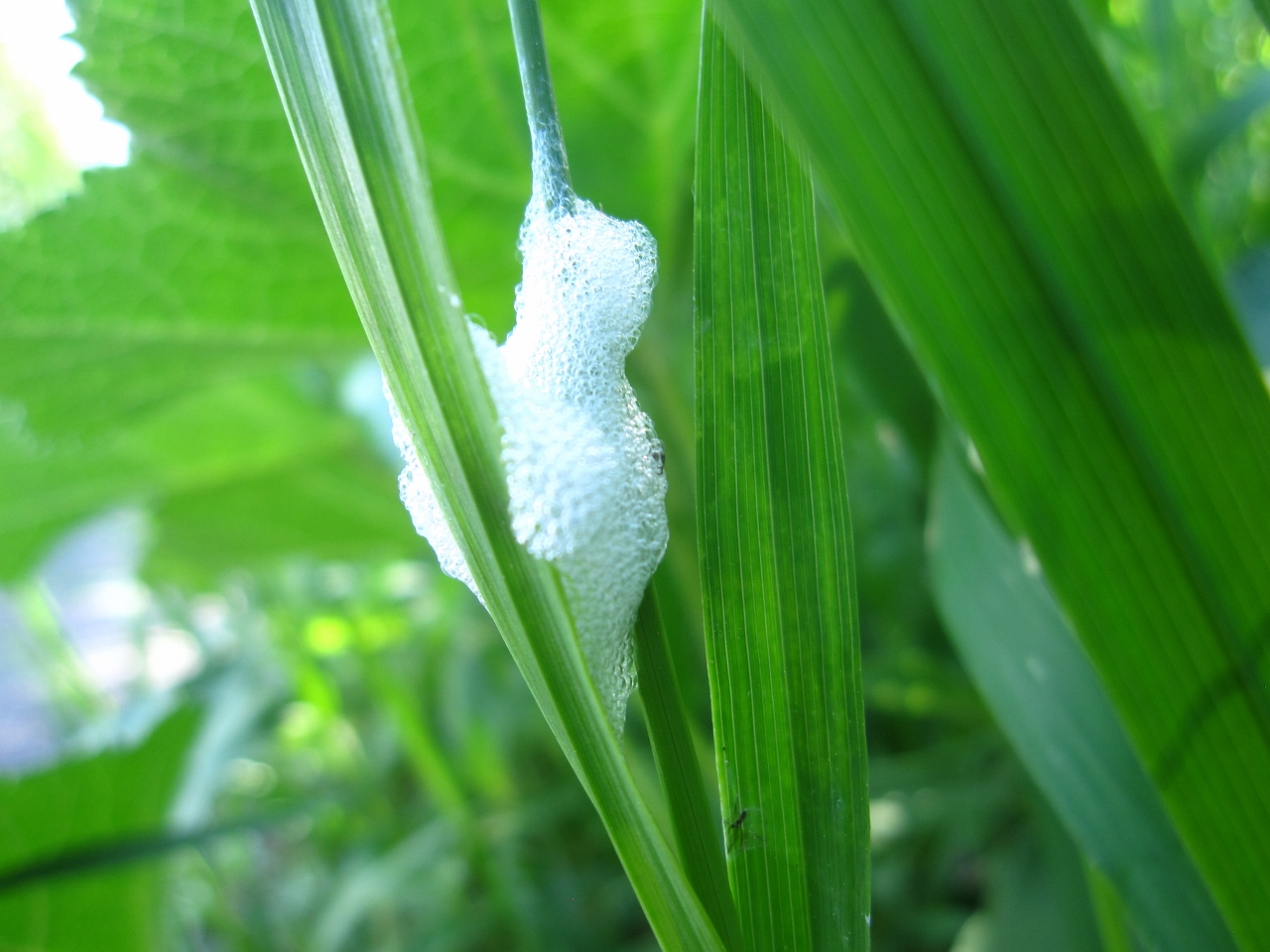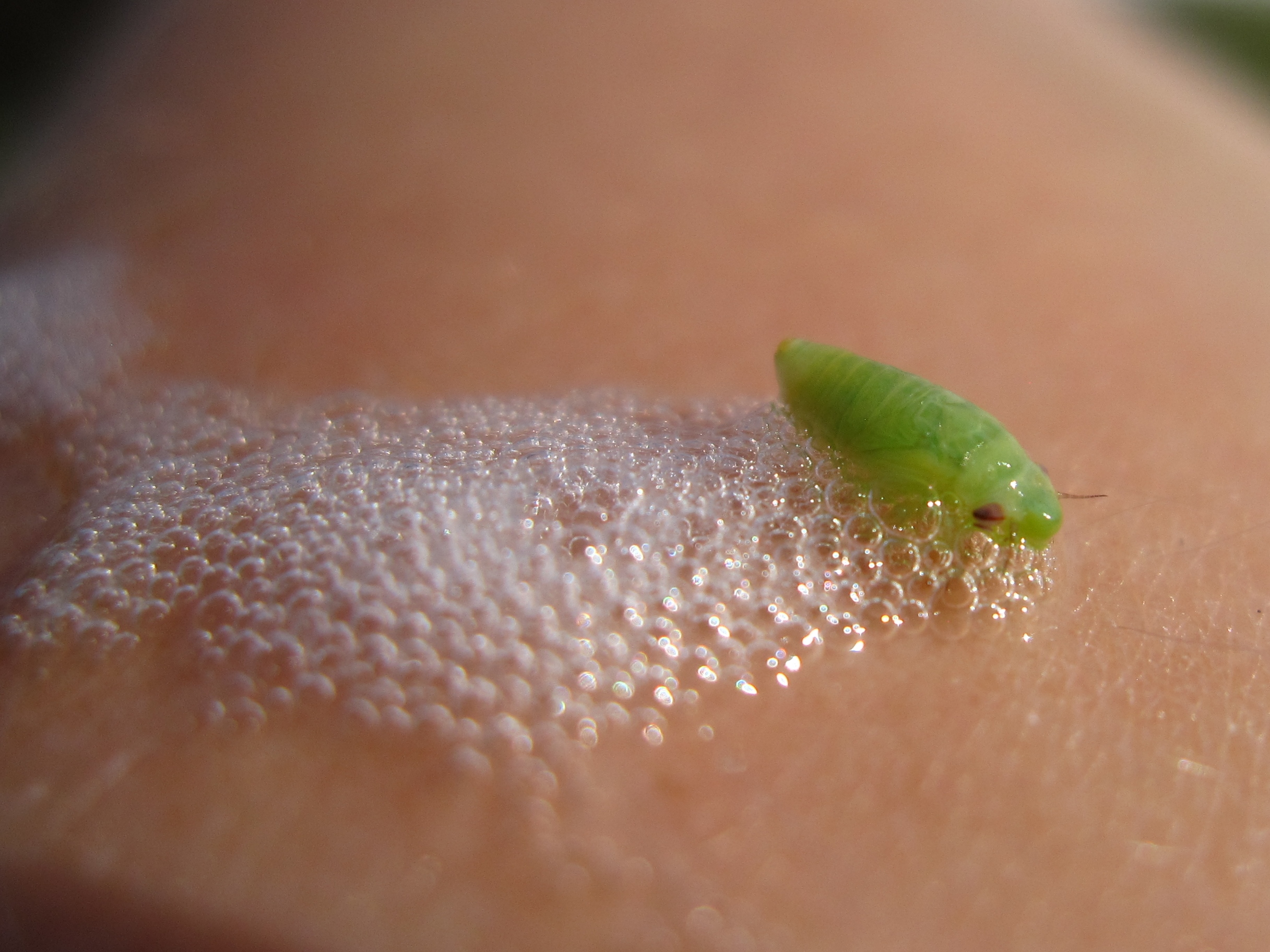Meet the Spittlebug
Those pesky neighbourhood hooligans are at it again. Spitting all over my plants and thinking I wouldn’t notice… weeelllll, I did notice and I’m not pleased! You just wait ‘till I see your parents!
Wait… what’s that? You’re telling me it wasn’t the neighbourhood kids? You’re telling me it’s a bug? No, that can’t be true. Bugs can’t spit, they don’t even have lips!
Meet the spittlebug.
The spittlebug nymph is actually the one who creates the spit-like substance that feels every bit as unpleasant as an actual gob of spit. The adult version of this nymph is more commonly known as a froghopper. They have sucking mouthparts and the nymphs feed from within their frothy cocoon.
Life Cycle
In the fall, adults lay rows of eggs in stems, specifically at the axis where the leaf meets the stem. The eggs will overwinter and hatch in the spring when conditions are appropriate. When the nymph emerges from the egg, it begins to secrete the spittle from its…ahem…rear end. The spittlebug will almost always have its head facing downwards to allow the spittle to flow over its body, mixing with other secretions and air, creating the bubbly goop we see. Feeding from inside the safety of the spittle, the nymph will grow and eventually become an adult froghopper who will lay more eggs in the fall.
But, Why?
The spittlebug isn’t a widely understood creature but it is thought that the spittle not only protects the insect from predators but also from its environment. The soft-bodied nymph is capable of drying out should the temperatures reach unpredictable heights and this spittle protects the creature from overheating and dehydration.
Damage Control
Fortunately, the tree hoppers and their spittlebug nymphs aren’t incredibly destructive. In some crops, like alfalfa, clover, and strawberry, the feeding can be a problem but for most people, a simple wash with some water will do the trick. Or you can let them be: there is only one cycle per season.
My apologies to the neighbourhood kids; the froghopper nymphs are to blame, 100%.





